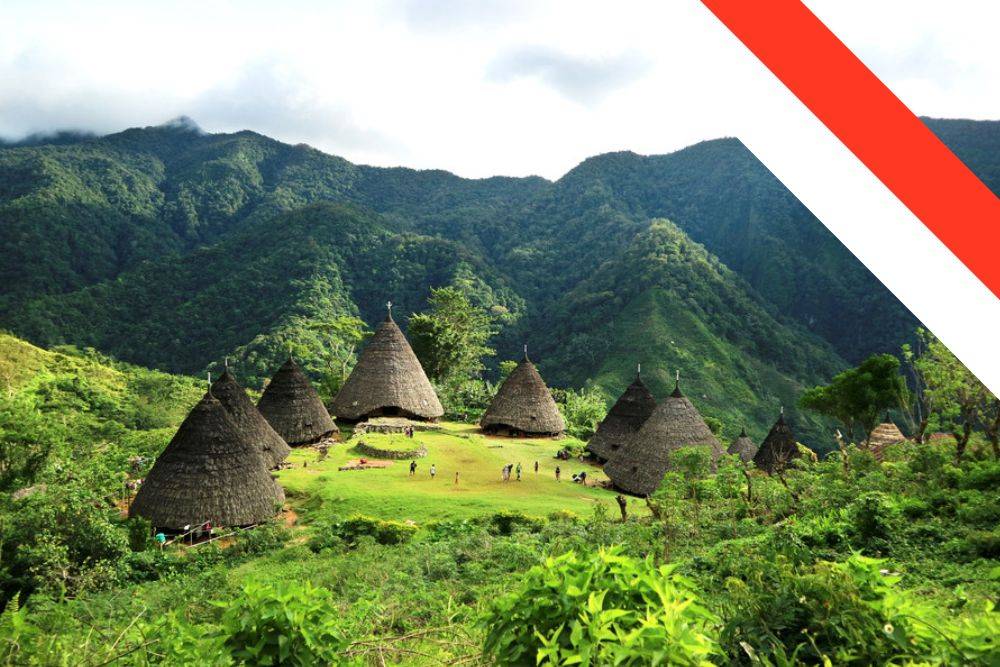East Nusa Tenggara’s picturesque landscapes belie a hidden struggle. There is a dire shortage of clean water. Discover the urgent call to action to tackle this crisis and ensure a healthier future for its inhabitants.
Indonesian Government Emphasises Water Access in NTT
Indonesian Minister of Tourism and Creative Economy, Sandiaga Salahuddin Uno, shed light on the challenges of accessing clean water in East Nusa Tenggara (NTT), including Labuan Bajo. He asserted this as a government priority. “We’re committed to ensuring fair access to clean water and sanitation. We’ve got 10 million connections needed, but only 3 million reached. There’s much work ahead,” said Sandiaga during his visit to Labuan Bajo on Wednesday (29/6/2024).
Despite this, Sandiaga noted the completion of the Water Supply System (SPAM) of Wae Mese in Labuan Bajo last year, enhancing clean water distribution. However, he acknowledged NTT’s broader struggle with water access, emphasising the need for swift and efficient action. Sandiaga advocated for ‘water for shared prosperity’, highlighting the injustice of enjoying tourism while nearby areas lack clean water.
Resident Erin (18) from Watu Nggelek Village echoed similar concerns, revealing their village’s limited water access. They received water from the SPAM system only three times a week and had to conserve it carefully. Erin emphasised the necessity for residents to have barrels to store water.
Confronting NTT’s Clean Water Dilemma
In the idyllic vistas of East Nusa Tenggara (NTT), where breathtaking shores and grand peaks enchant visitors, resides a concealed quandary: the battle for potable water. Despite its scenic charm, NTT contends with a dire shortage of pure drinking water, offering a stark paradox amidst its awe-inspiring scenery. This piece illuminates the clean water dilemma in NTT, underscoring the imperative of tackling this elemental human rights concern. In 2021, the cost of one water tank in NTT (Kupang) stood at £10, equivalent to 200,000 Indonesian Rupiah
Clean Water Crisis Gripping NTT
.According to the 2022 National Socioeconomic Survey, 3.74% of the population in East Nusa Tenggara (NTT) struggles to access safe drinking water, meaning they lack access to quality assured drinking water. The absence of proper sanitation facilities further exacerbates the situation, posing significant health risks and perpetuating the cycle of waterborne diseases. Moreover, climate change-induced droughts intensify the scarcity, leaving communities vulnerable to prolonged periods without access to essential water supplies.
Addressing this crisis necessitates comprehensive strategies encompassing infrastructural development, community engagement, and sustainable water resource management practices. Collaboration between governmental bodies, NGOs, and local communities is imperative to implement long-term solutions and ensure equitable access to clean water. Thus, concerted action is vital to alleviate the burden of water scarcity and safeguard the health and well-being of NTT’s inhabitants.
Public Health at Risk
Beyond its aesthetic charm, NTT’s clean water scarcity poses grave threats to public health. Waterborne diseases such as cholera, typhoid, and dysentery run rampant, particularly among vulnerable demographics like children and the elderly. The dire situation underscores the urgent need for access to clean, hygienic water sources to safeguard public health.
Furthermore, the lack of clean water hampers educational opportunities for children, as frequent illnesses disrupt schooling and hinder academic progress. The economic repercussions of waterborne diseases are also profound, as medical expenses drain limited household resources and productivity losses further strain local economies. Inadequate access to clean water perpetuates a cycle of poverty, ill health, and a diminished socioeconomic populace. The World Bank’s 2020 study estimated that the clean water crisis in East Nusa Tenggara (NTT) costs the local economy up to Rp 11 trillion annually—the clean water crisis in NTT results in lost productivity due to illness and high healthcare costs.
Limited Infrastructure and Management Failures
The root of NTT’s clean water crisis lies in its deficient infrastructure and ineffective water management practices. The region’s reliance on unpredictable rainfall exacerbates the challenge, compounded by outdated infrastructure that struggles to distribute clean water efficiently. The absence of robust water management exacerbates the crisis, perpetuating a cycle of scarcity and contamination. Moreover, rapid urbanisation strains existing water infrastructure, further intensifying the pressure on inadequate systems. Deforestation and land degradation also contribute to soil erosion, contaminating water sources with sediment and pollutants and worsening the water quality. The lack of investment in modern water treatment facilities exacerbates the situation, leaving communities vulnerable to waterborne diseases and health hazards. Inadequate governance and regulatory frameworks hinder progress towards sustainable water management solutions, deepening the crisis.
Community Action and Government Intervention
Amidst the adversity, proactive measures are underway to combat NTT’s clean water crisis. Local organisations and NGOs collaborate to implement sustainable water management solutions and provide clean water access to vulnerable communities. Concurrently, government initiatives aim to enhance water infrastructure and expand clean water accessibility.
Investments in new water treatment facilities and rehabilitating existing ones reflect a concerted effort to address the pressing issue. However, challenges persist, including funding constraints, logistical hurdles, bureaucratic inefficiencies, and slow progress. Moreover, climate change poses a looming threat, exacerbating water scarcity and altering precipitation patterns, necessitating adaptive strategies. Nonetheless, grassroots initiatives empower communities to take ownership of water resources and implement innovative solutions tailored to local needs.
Public awareness campaigns raise consciousness about water conservation and hygiene practices, fostering a culture of responsible water stewardship. International partnerships offer technical expertise and financial support, bolstering local capacity and resilience in the face of water-related challenges. Collaboration across sectors and stakeholders is vital to overcoming the clean water crisis and building a sustainable future for NTT. Thus, collective action and perseverance are essential to ensure equitable access to clean water and safeguard the well-being of NTT’s inhabitants for generations to come.
Human Right
NTT’s scenic beauty is a testament to nature’s grandeur, but its clean water crisis is an urgent call to action. Access to clean water is a fundamental human right, necessitating collective efforts from government and community stakeholders to ensure its realisation. By prioritising sustainable solutions and collaborative action, NTT can transcend its clean water crisis, fostering a healthier and more sustainable future for its populace.
Photo Credit: The Jakarta Post
Reference:
1. Detik Health. “Ironi di Balik Pesona Alam NTT, Warganya Susah Dapat Air Bersih” (2024). Retrieved from: https://health.detik.com/berita-detikhealth/d-7364812/ironi-di-balik-pesona-alam-ntt-warganya-susah-dapat-air-bersih.
Have a pressing question for a doctor? Medical Channel Asia has launched a community forum page where you can get questions answered by a medical specialist. Visit the community forum here.













